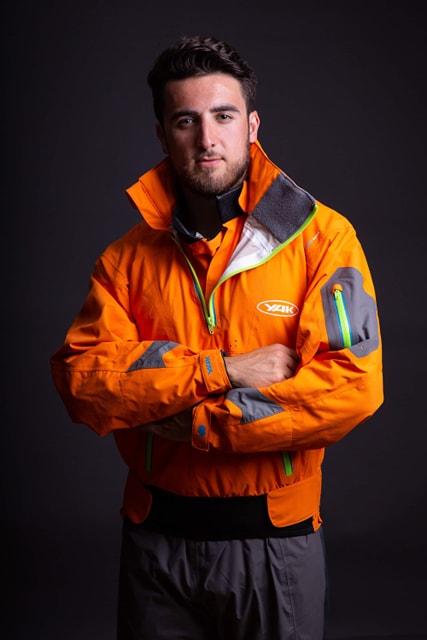
For many, joining University is a big step forward in discovering who they want to be. But when it comes to graduating and venturing into the wider world, that is when the page in your book stops turning. Like a novel, you need to know the character and plot in order to continue the story; but as an undergrad, you often leave it on pause.
Knowing what degree to take is one thing, but finding a career is another – I spoke to Isaac Kenyon to find out how he coped as an Undergraduate, facing the challenge of creating a future, and the opportunities he encountered along the way.
So, Isaac, as an alumnus at Royal Holloway, tell us a little about your time here – What degree did you study, your hobbies and things you liked to do on campus?
“The key thing to know about me is that I am known as over-enthusiastic about life in general. I am 25 and I studied a 3 years BSc Geology, and then a 1-year scholarship on the MSc Petroleum Geoscience course. As a child, I loved the movie “Jurassic Park” for its spirit of adventure, natural history and dangerous dinosaurs… This extended to later life inspiring me to choose Geology as it encompasses that movie moment as a palaeontologist in Jurassic Park! I was also curious in understanding how resources make the world go round – I wanted to learn more about energy and how that powers our economy, moving me into the energy business after graduation.
I love a challenge, learning new things and helping others so I have always been philanthropic in my hobbies. I love all things outdoors as a result of studying rocks, so many of my charitable ambitions and adventures involve the outdoors. When I was on campus, as you can imagine, I was very involved in sports (swimming) and societies (Lyell Geoscience) and loved them as they made the whole experience at Royal Holloway very special – it’s where I have met a lot of my closest like-minded friends.”
As an undergrad, did you have any fears or questions about your future after graduation?
“Fear is natural – everyone has it. There is a sense of fear I feel that grows in students because of the amount of debt taken on, and the importance of “getting it right” that society puts on someone starting a degree. I was always told by those older in work that my future is never mapped out, you have no idea what is around the corner, just be adaptable for when it comes. After graduation, I got my first job! It wasn’t my choice of job, but I needed the money. I got my dream job 2 years later, for some, it is really hard to get a job they like; but nothing can beat persistence – you will get to where it feels right, it’s all about patience and not letting fear overcome living in the moment. Enjoy your university experience, live it up, when it’s gone it’s gone.”
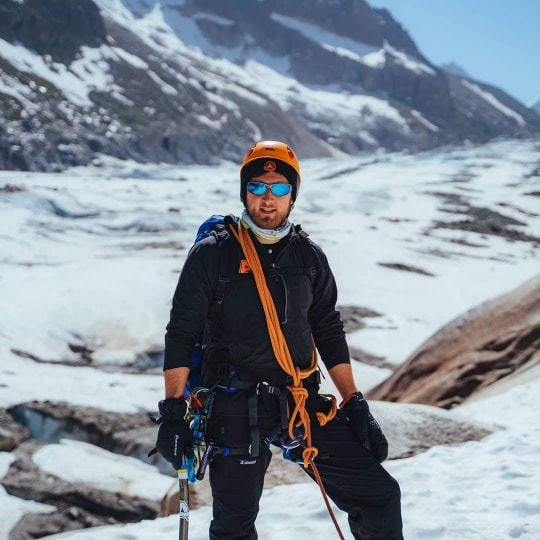
What prompted your eagerness to join the Atlantic Discovery, and what was the process?
“Around my 2nd year of university, I was asked this. “If you had 5 years left, what would you do in those 5 years?”. I wrote a list of things to this and found I wanted adventures all over the world in remote environments visited by few people. I wanted an extraordinary life, not the usual “finish Uni, get married, buy a house, have a kid”. I wanted to do something I will truly remember, and help people along the way (charities or inspiration) so I started organising small adventures. I organised a swim across the English Channel with Royal Holloway Swimming Club and a climb to the summit of Mt. Kilimanjaro (image to the right). A friend called Benjamin Ajayi-Obe, from that Kilimanjaro trek, sent me a text message “Do you want to row the Atlantic”. As you know my goals was for an extraordinary 5 years was to challenge, to learn and to help others… So naturally, I said yes to this in less than 5 seconds, with no prior rowing or sailing experience. It was that easy, just saying “yes” and committing to it.”
Was there a cause behind your rowing?
“There was a cause, we raised £40,000 for two charities involved with helping those with Multiple Sclerosis. One was a therapy centre in Reading that Ben, who asked me on the row told me about. His mum has multiple sclerosis so that’s why he wanted to do the row as it would put his mother’s charity on the map. The other charity was Multiple Sclerosis Society that focussed on funding research for a cure for the disease.”
What challenges did you face in the process of preparation?
“We needed to raise £120,000 from nothing. So, we had to build a brand, and approach sponsors. We had to learn to row and row on the ocean. We needed to know first aid at sea as well as navigate and communicate. We had to learn about this incredibly strange boat called an R45 which is the vessel we heard others used to row the Atlantic Ocean with. We had to learn it inside out – how do the solar panels work, how to take apart and refit a watermaker. There was a lot to learn and a lot of money to be conjured up. The biggest challenge was doing this with full-time jobs!!! I would be up at 6 am and bed at 12am every day for a year.”
Tell us about the row – what were the worst and best parts?
“The worst part was the first week. You leave normality behind as you row away from the starting island – La Gomera of the Canary Islands. You suddenly feel very small on this tiny boat and it sets in that you won’t see land for up to 40 days. The waves are 20ft high and you’re trying not to be seasick whilst keeping your nutrition up, navigating in a vast open sea and rowing for 2 hours on and 2 hours off. The circadian rhythm disappears completely… you are on a new schedule. After 12 hours of rowing your bum is sore and your hands hurt. You then realise your rowing in the middle of the night; it becomes very real in that first week adjusting to this. There is danger everywhere. The best part – jumping in the middle of the Atlantic with 5km water below you, swimming with 5 whales all the size of double-decker buses only a couple of meters away from you. I touched two of the whales and the memory I remember the most was it swimming very slowly next to me, looking me right in the eye. Its eye was almost the size of my head!”
How did you feel when you crossed the finish line?
“Very mixed emotions. You are so happy to not have to row anymore, but you miss the peace and tranquillity and all the most amazing moments like the Milky Way every night or shooting stars and the endless colours of the most gorgeous sunrises and sunsets. It all has to be left behind. But then you’re so happy to see your friends and family at the harbour and the media and press – you feel like a gladiator!”
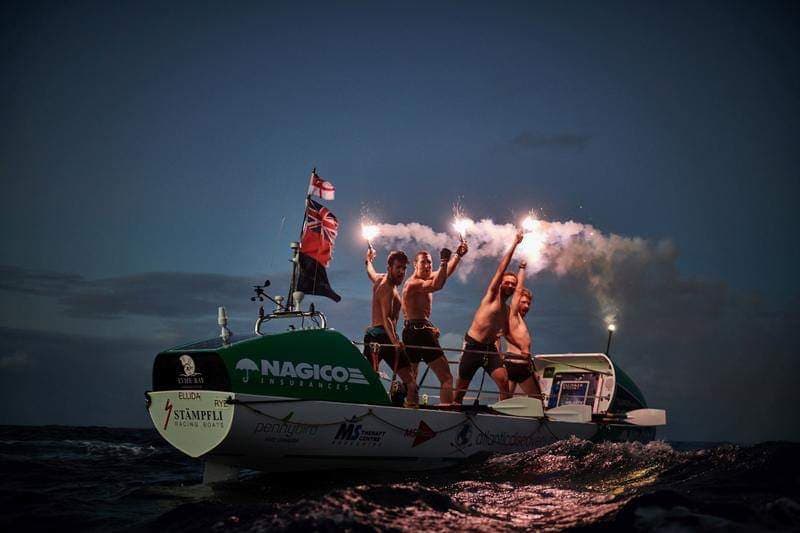
Looking back to University after the row, did you reflect on your initial career thoughts, and how did the row change this for you?
“It has made me realise the bigger picture. There is no right or wrong route. I now do as I feel most happy – I have my own aspirations, my own goals and nobody can change this, except me. What you think is impossible is very possible if you commit to it and work hard. Careers can change, life is always changing, what is key is really how well you adapt to change. I now feel more adaptable and much happier for it.”
What was the hardest part about stepping out of your comfort zone and trying something new?
“Money. I came out of university with £40,000 debt and then took on a challenge that was £120,000. What was I thinking!?! Sometimes money can restrict you. We raised that £120,000 through sponsors. If you believe in something and want to make a dream happen you can, it’s about committing to it and taking steps towards your goal and that is when people start to believe in you and help you get there, it is incredible how much help there is In this world if you ask.”
What opportunities have been presented for you now that you have completed the Atlantic Discovery?
“I started a motivational speaking business for companies, educational institutions and organisations like the Scouts. I believe I learnt so much from this adventure as well as some of my other adventures and have now the opportunity to inspire and help others achieve their goals.”
Do you do any more charity fundraising?
“I am always fundraising for different causes. This year I have raised money for the National Autistic Society. A member of my family is autistic and is a real inspiration to me at how they overcome their barriers on a daily basis. I recently found out that only 15% of autistic people are employed, which is quite staggering – I feel we need to focus on getting more opportunity for those with autism to work, so I am involved in the National Autistic Society in teaching businesses how to handle an autistic employee to raise the employability stat.”
What skills, knowledge and appreciation have you taken away from this experience?
“I think everyone deserves an opportunity, sometimes those who are less educated miss out. From this experience I have learnt that anything is possible and great things can come from autistic people, they deserve an opportunity too.”
Would you say these opportunities have had an impact on your mental and/or physical health?
“These opportunities have done me wonders for my mental health. I have always had anxiety, accompanied by panic attacks. I find that when I work too long on a computer without any outdoor time I start to go into overdrive which causes me to panic. I find that these adventures in the outdoors have allowed me to really put things into perspective and slow down the mental overdrive that screens can cause. My physical health also improves as I get fitter, stronger and healthier with taking in the fresh air and learning physical skills that are useful for many different situations. It is what makes me happy and it impacts me positively which I think is a must. I would suggest completing one of these in your spare time to help you find what makes you happy… This is Ikigai, it is something that I did at university to help me find things that are positive in my life. Try it, see if it works on you!.”
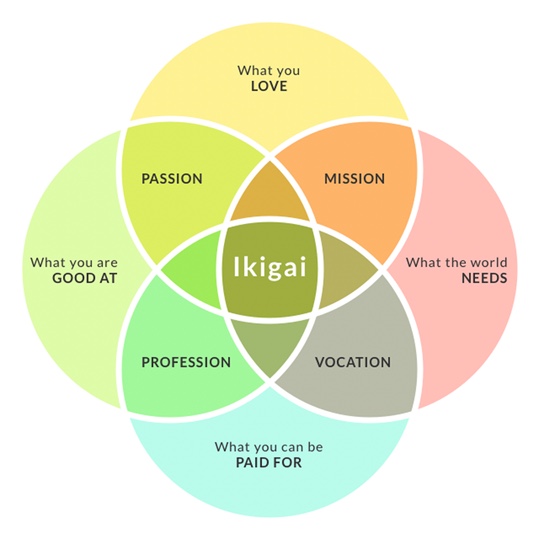
Do you have any current projects, and can we see more action in the near future?
“Yes, I am a trustee for the charity ‘Mind’ in Mid Herts, which is a charity that is focussing on prevention, social support and recovery for those who have poor mental health in Hertfordshire -where I live. I will be cycling the length of the UK next year in aid of this charity and highlighting the importance of preserving our national parks in the UK.”
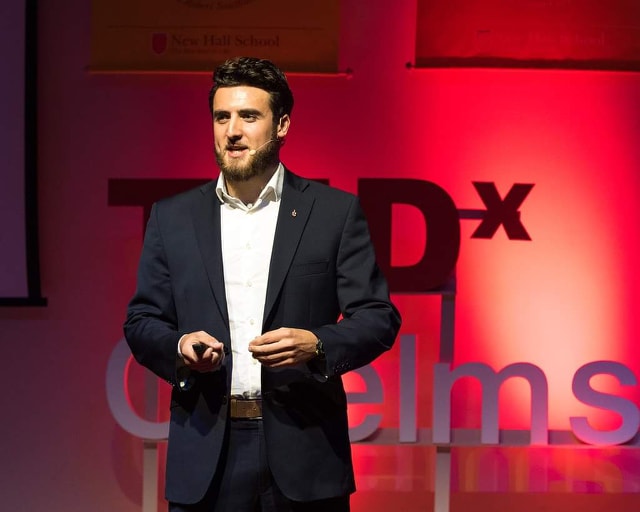
We have heard you have given a TED Talk, what is your main message and why is it important for you?
“I have done a TED talk, my main message is that with a new digital age, the youth of today are over-excessively on screens. It is interesting that there has been a huge rise in mental health issues from over-excessive screen time in the last 10 years. I talk about reconnecting with nature and getting some outdoor time to balance with screen-time. It is proven that the outdoors helps with your mental health, something that is clearly declining in the youth of today.”
Do you have any words of advice, encouragement, or wisdom to pass down to current Undergrads who may be facing a tough time trying to figure out their futures?
“I would go for a walk in the woods. Spend some time with a notepad writing down all your thoughts, your ideas, your worries etc. write down things that make you happy and the things you get excited about. That allows you to realign with what’s important to you. If you’re confused about your future, it’s normal – most people go through it. Stay true to yourself and do what you feel is what makes you happy, there is no point trying to fake yourself or please others, it will just waste your time and make life complicated. Keep it simple.”
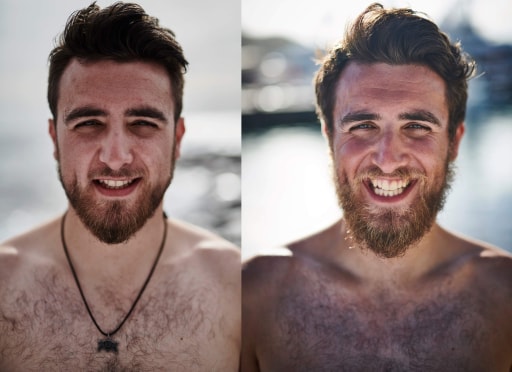
So, there you have it – from one student to another; anything is possible if you commit and take small steps towards your goal. If there is anything to take from Isaac’s experience, it is knowing that the process of achieving is a process chosen distinctly by YOU, and it is never impossible to gain the support along the way. Life is forever changing, but sometimes that is part of expanding on greater success. Push away your worries and fears regarding meeting expectations and you will find yourself in a new respect for the greater world and more in tune with your gut, heart and mind. Give the Ikigai a try, and you may just surprise yourself. If Isaac’s interview isn’t encouraging enough on why you should live life on an adventure, take a look at the picture below – Isaac took a before and after (the Atlantic row). As you can see plainly, the amount of joy, challenge, ambition and overall satisfaction is radiating from his post-row photo. This is proof enough that challenging yourself and being in the outdoors is what keeps your brain happy.
If you’d like to follow Isaac on his adventures – I guarantee you will find many encouraging and inspiring posts!
Instagram: @isaac_kenyon (Mr. Enthusiasm)
Facebook: Isaac Kenyon (Mr. Enthusiasm)
